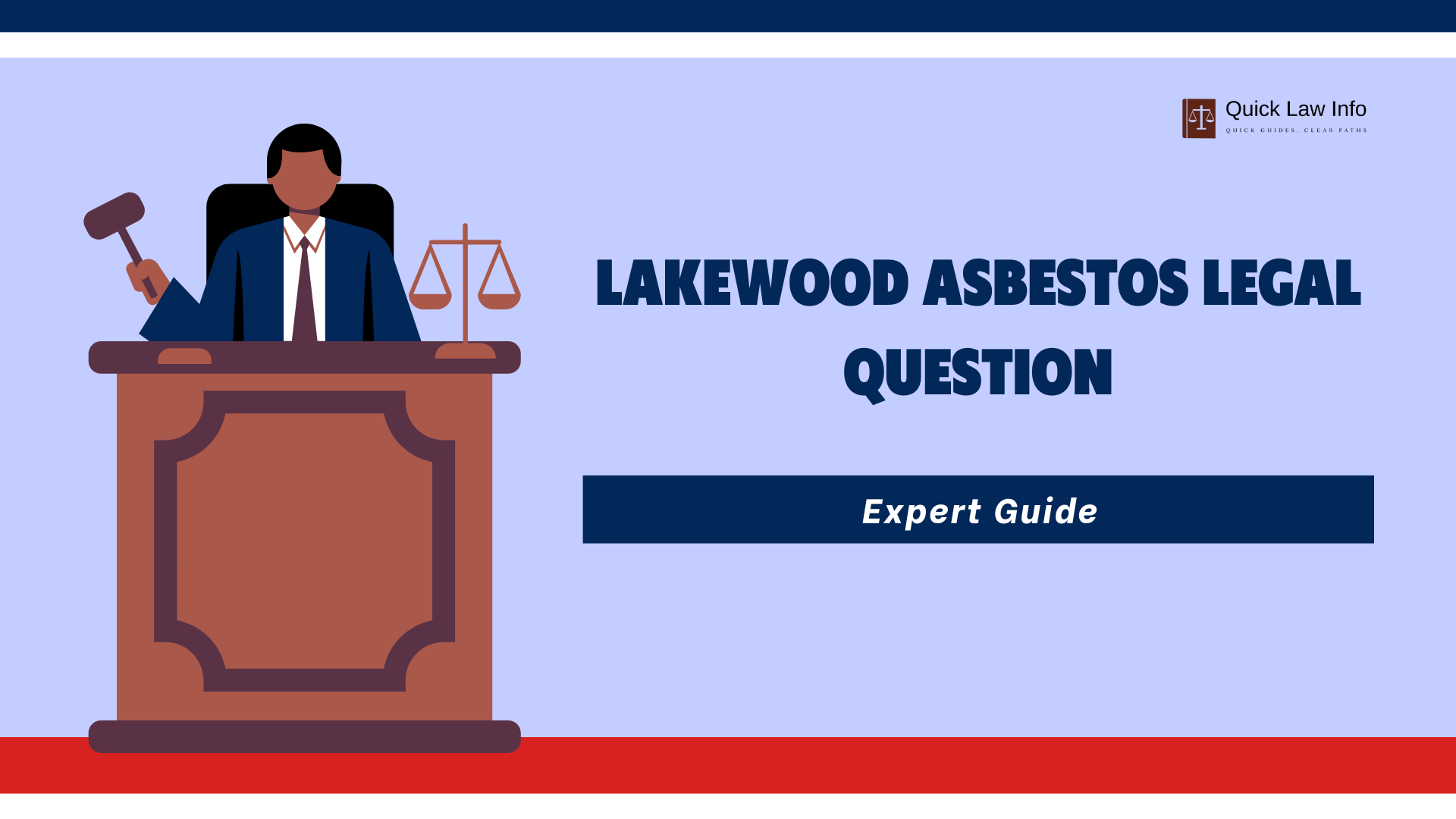Asbestos is a mineral found in nature, which was previously extensively utilized in construction materials because of its ability to withstand high temperatures and its durability. However, research has revealed that asbestos exposure can result in severe health complications, including lung cancer and mesothelioma.
This has resulted in numerous legal questions and cases, including the well-known Lakewood asbestos legal question. In this article, we will delve into the details of this legal question and its implications.
Understanding Asbestos Exposure
As previously mentioned, asbestos is a mineral commonly used in building materials like insulation, roofing, and flooring. Damaging or disturbing these materials releases tiny asbestos fibers into the air. Breathing in these fibers can cause them to become lodged in the lungs, leading to long-term damage.
The Lakewood Asbestos Legal Question
The Lakewood asbestos legal question revolves around a former asbestos manufacturing facility in Lakewood, New Jersey. The facility, owned by Johns-Manville Corporation, operated from 1930 to 1985 and was responsible for the production of asbestos-containing products. As a result, the surrounding community was heavily exposed to asbestos fibers, leading to numerous cases of asbestos-related illnesses.
In the 1980s, the Environmental Protection Agency (EPA) declared the facility a Superfund site and initiated a cleanup process. However, this process did not address the health concerns of those who had already been exposed to asbestos. This resulted in multiple legal cases against Johns-Manville Corporation, including a class-action lawsuit filed on behalf of the residents of Lakewood.
Implications of the Legal Question
The Lakewood asbestos legal question had far-reaching implications for both the community and the legal system. The residents of Lakewood who were exposed to asbestos and developed health issues had to fight for justice and compensation. This case also highlighted the need for stricter regulations and accountability for companies using asbestos in their products.
It also brought attention to the importance of proper clean-up and remediation of sites contaminated with asbestos.
Related Articles
The Lebanon Asbestos Legal Question Answers – What You Need to Know
Legal Responsibility for Asbestos in Lakewood
One of the key legal questions surrounding asbestos in Lakewood is who is responsible for its presence in buildings. In most cases, the building owner or landlord is responsible for ensuring the safety of their tenants. This includes identifying and removing any asbestos-containing materials in the building. However, in some cases, the responsibility may fall on the manufacturer of the building materials if they fail to disclose the presence of asbestos.
This is why residents of Lakewood need to know their rights and understand who is legally responsible for their asbestos exposure.
Compensation for Asbestos-Related Illnesses
Another important legal question is whether or not those who have been exposed to asbestos in Lakewood can seek compensation for any resulting illnesses. The answer to this question is yes. If you or a loved one has received a diagnosis of an asbestos-related illness, you may qualify for compensation for medical expenses, lost wages, and pain and suffering.
However, the process of seeking compensation for asbestos-related illnesses can be complex and time-consuming, which is why it is important to seek the help of an experienced attorney.
Statute of Limitations for Asbestos Lawsuits in Lakewood
A statute of limitations is a law that sets a time limit for filing a lawsuit. In Lakewood, the statute of limitations for asbestos lawsuits is two years from the date of diagnosis or two years from the date of death in cases where the person has already passed away. If you have been diagnosed with an asbestos-related illness, you must file a lawsuit against the responsible party within two years.
It is important to note that if the statute of limitations passes, you will not be able to file a lawsuit and seek compensation.
Lessons Learned
The Lakewood asbestos legal question serves as a cautionary tale for both companies and communities. Companies should prioritize the safety of their workers and the surrounding community by using alternative materials and properly disposing of any asbestos-containing products. Communities should also be aware of potential hazards and hold companies accountable for any harm caused.
Final Thought
The presence of asbestos in Lakewood has raised numerous legal questions that must be addressed to protect the health and rights of its residents. Individuals need to know their rights and understand the legal responsibilities of building owners and manufacturers when it comes to asbestos.
If you or a loved one has been exposed to asbestos in Lakewood, seeking the help of an experienced attorney can ensure that you protect your rights and receive the compensation you deserve. Remember, the statute of limitations for asbestos lawsuits is two years, so it is crucial to take action as soon as possible.
